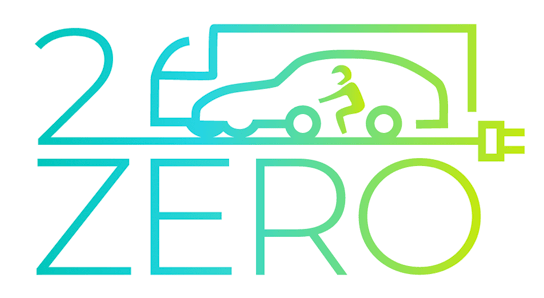Curious about our weekly polls’ results?

Starting from 4th May, and for a week, we launched daily polls to get an idea of what was the level of knowledge and comprehension about the future of the European road transport and the 2Zero partnership.
We started with a hot question in the political agenda:

The 2Zero partnership shares the vision of Europe becoming the first climate-neutral continent by 2050. A high rate of introduction of zero tailpipe emission vehicles (BEV and FCEV) is one of the key elements for climate neutrality within the transport sector: 2Zero will focus R&I activities on the improvement of the performance of these vehicles, increase their acceptance from the end-users and their integration into the overall transport and energy system. A large range of stakeholders covering many aspects of the value chain will be needed from both the public and the private side to achieve this.
Our second poll was covering more specifically the policy objectives, and particularly the Green Deal.

The increase of alternative fuels availability, reinforcing air pollutants emissions standards and deployment of public recharging points are all covered in the EU Green Deal. Several dimensions need to be investigated to address these areas, including research and innovation: in this dimension, 2Zero will act as a central point thanks to the 4 pillars structuring the partnership activities.
The 2Zero partnership will address the development of a multi-technology portfolio of solutions that meet the demands of diverse user groups, maximising affordability and cost-effectiveness also by considering new business models, new ownership models and innovative mobility solutions whilst remaining competitive at the global scale.
The outcomes of R&I under the 2Zero partnership will support the acceleration of the transition towards a climate-neutral and clean road transport system. In Horizon Europe, 2Zero will be allocated in Pillar 2 “Global challenges and industrial competitiveness of Europe” and in the Cluster 5 “Climate, Energy and Mobility”, reinforcing the cross-sectoral links with the energy sector and highlighting 2Zero’s contribution to the European economy by establishing better recycling of used goods and waste, creating jobs and economic growth, reinforcing strategic independence and environmental friendliness from saving natural resources and optimizing energy use in mobility and industry. Therefore, 2Zero will be an integral part of the strategy for making Europe the first climate-neutral continent by 2050 and of the European Green Deal.
The 3rd poll was not easy to answer. The results were tight!

2Zero will contribute to SDG … 13 – 7 – 8 – 11 !
By drastically reducing CO2 and other GHG emissions from road transport, it will make a decisive contribution to the SDG 13 – Climate Action.
By supporting the development of multiple solutions, alternatives to conventional vehicles, and the related recharging/refuelling infrastructure, whilst leading the way to the use of 100% renewable energy carriers in road transport, the partnership will contribute to the SDG7 “Affordable and clean energy”.
By improving air quality in cities and limiting noise it will bring the SDG11 “Sustainable cities and communities” a step closer to reality.
By reinforcing European competitiveness, it will support sustainable economic growth across the continent, whilst improving the quality of jobs in the road transport area, and will contribute to SDG8 “Decent work and economic growth”.
Our last poll was focusing on the general objectives of the 2Zero partnership and demonstrated the interconnection of the end-user perspective (“increase the benefit for the citizens”) and the race towards a global position of EU stakeholders (“increase EU competitiveness” and “increase of technology leadership”).

The combination of research and innovation activities undertaken under the 4 pillars of the partnership will allow to address the following objectives of the Horizon Europe programme:
- to support the creation and diffusion of high-quality, new knowledge, skills, technologies and solutions to global challenges;
- to strengthen the impact of research and innovation in developing, supporting and implementing Union policies, and support the uptake of innovative solutions in industry and society to address global challenges;
- to foster all forms of innovation, including breakthrough innovation, and strengthen the market deployment of innovative solutions.